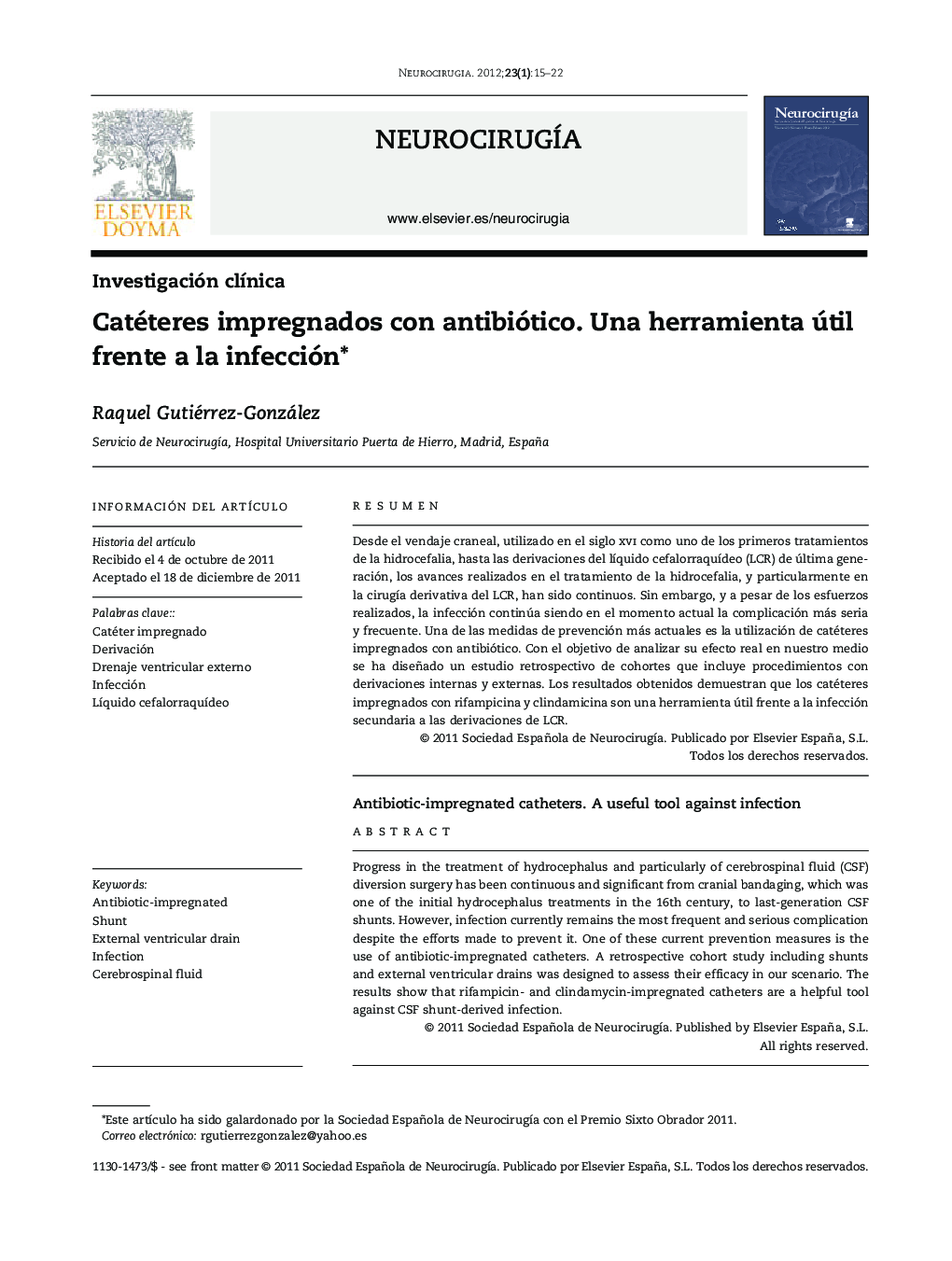| Article ID | Journal | Published Year | Pages | File Type |
|---|---|---|---|---|
| 3071614 | Neurocirugía | 2012 | 8 Pages |
Abstract
Progress in the treatment of hydrocephalus and particularly of cerebrospinal fluid (CSF) diversion surgery has been continuous and significant from cranial bandaging, which was one of the initial hydrocephalus treatments in the 16th century, to last-generation CSF shunts. However, infection currently remains the most frequent and serious complication despite the efforts made to prevent it. One of these current prevention measures is the use of antibiotic-impregnated catheters. A retrospective cohort study including shunts and external ventricular drains was designed to assess their efficacy in our scenario. The results show that rifampicin- and clindamycin-impregnated catheters are a helpful tool against CSF shunt-derived infection.
Keywords
Related Topics
Life Sciences
Neuroscience
Neurology
Authors
Raquel Gutiérrez-González,
